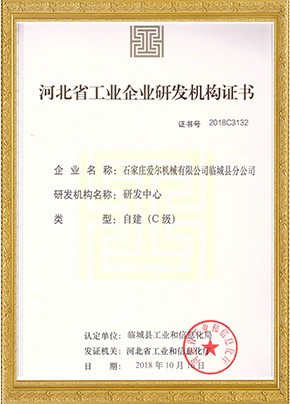sept. . 28, 2024 19:53 Back to list
Manufacturers of Rubber Impellers for Slurry Pumps and Their Specialized Applications
The Importance of Rubber Impellers in Slurry Pump Manufacturing
In the world of industrial equipment, slurry pumps play a vital role in a variety of applications, including mining, wastewater treatment, and construction. One critical component of these pumps is the impeller, and among the various types available, rubber impellers have gained significant attention from manufacturers and end-users alike. This article will delve into the advantages of rubber impellers in slurry pump manufacturing, their applications, and the reasons why manufacturers are increasingly adopting this technology.
What are Rubber Impellers?
Rubber impellers are specifically designed components made from elastomeric materials, tailored to meet the demanding requirements of slurry pumping applications. Unlike metal impellers, rubber impellers are known for their resilience and flexibility. They can effectively handle abrasive and corrosive slurries, reducing wear and extending the lifespan of the pump. This innovative design is essential for industries that often deal with challenging materials, such as sand, gravel, and various chemical mixtures.
Advantages of Rubber Impellers
1. Durability and Resistance One of the primary benefits of rubber impellers is their superior resistance to abrasion and corrosion. In slurry applications where the pumped material can be highly abrasive, rubber impellers help minimize wear and tear. This durability means reduced downtime for maintenance and repairs, leading to operational efficiency and cost savings.
2. Weight and Efficiency Rubber impellers are generally lighter than their metal counterparts. This reduced weight leads to lower power requirements for the pumps and can enhance the overall efficiency of the system. Manufacturers can achieve higher flow rates and improved performance without the need for oversized motors or additional power sources.
3. Cavitational Performance Rubber impellers can better withstand cavitation—a phenomenon where vapor bubbles form in the liquid and collapse, causing damage. Their flexibility allows them to absorb shock and vibrations that occur during cavitation, protecting the pump's internal components and enhancing reliability.
4. Customizability Many manufacturers provide customizable rubber impellers tailored to specific applications. Different rubber compounds can be used to enhance performance based on the type of slurry being pumped, whether it be acidic, alkaline, or containing specific abrasives. This level of customization allows operators to optimize their systems for maximum efficiency and longevity.
rubber impeller of slurry pump manufacturers

Applications in Various Industries
Rubber impellers are widely used across multiple industries, each with unique slurry pumping requirements. In the mining sector, they are critical for transporting slurries that contain minerals and sediments. The ability to handle highly abrasive materials without significant wear makes them ideal for such high-demand applications.
In wastewater treatment facilities, rubber impellers help manage sewage and sludge transfer effectively. Their corrosion resistance is particularly beneficial in environments where chemical exposure is common, as they ensure that the pumps remain operational over extended periods.
Construction and civil engineering projects also benefit from rubber impellers, particularly in dewatering applications. In these scenarios, consistent and efficient slurry movement is essential to keep work sites operational and safe.
Trends in Slurry Pump Manufacturing
As the demand for robust and efficient slurry pumps continues to grow, manufacturers are increasingly focused on the innovation and improvement of rubber impeller designs. Advances in material science have led to the development of new rubber compounds that offer enhanced performance and longevity. Moreover, the integration of digital technologies, such as performance monitoring and predictive maintenance, allows operators to gauge the condition of rubber impellers in real-time, leading to informed decision-making regarding replacements and maintenance.
Conclusion
The significance of rubber impellers in slurry pump manufacturing cannot be understated. Their unique properties, such as durability, efficiency, and customizability, position them as a preferred choice for diverse pumping applications across various industries. As technology continues to advance, the role of rubber impellers will likely grow, paving the way for more efficient and reliable slurry handling solutions. The future of slurry pump manufacturing appears robust, with rubber impellers at the forefront of innovation and performance.
-
China Portable Slurry Pump Manufacturer - Durable & Efficient Submersible Design
NewsMay.29,2025
-
High-Quality Submersible Slurry Pumps Reliable Manufacturer & Supplier
NewsMay.29,2025
-
High-Quality Sand Dredge Pump 8 Durable Manufacturer & Supplier
NewsMay.29,2025
-
Electric Submersible Slurry Pump - Durable & Efficient China Suppliers
NewsMay.29,2025
-
Submersible Slurry Pump with Agitator Durable China Suppliers & Manufacturers
NewsMay.29,2025
-
Vertical Sump Pump Rubber Lined - Durable Corrosion-Resistant Design China Manufacturers
NewsMay.29,2025
